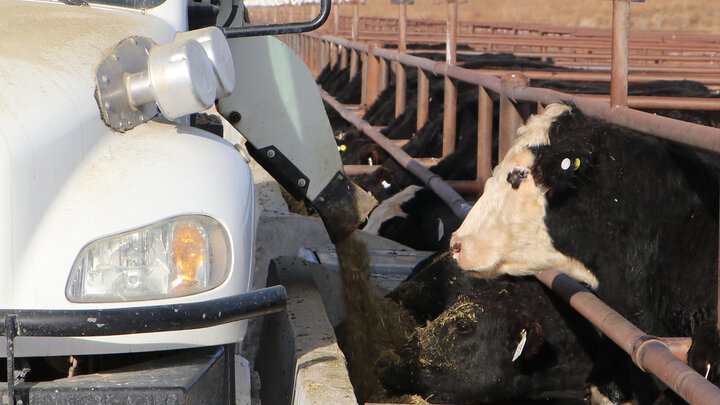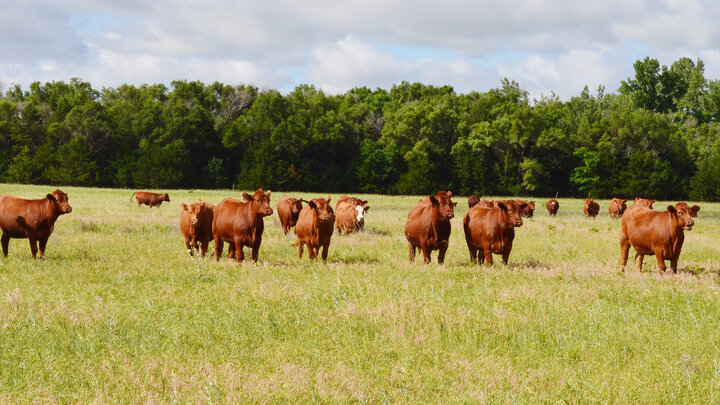Current market conditions for raw, whole soybeans are making them price competitive in parts of Nebraska with other protein sources, such as distillers grains and alfalfa hay, to be used as a protein supplement for cows, as well as weaned calves.
The following are some principles to remember when feeding raw, whole soybeans to cattle.
Soybeans are approximately 40 percent crude protein and 20 percent fat and should be introduced gradually into the diet. Because high fat levels in cattle diets can negatively impact fiber digestion, they should not be fed at a level higher than needed to meet protein requirements in the diet. In growing calves, limit soybeans to 7 percent of the diet or less, and 5 percent or less in finishing diets. Raw soybeans contain a trypsin inhibiting enzyme. This enzyme is important for protein digestion in non-ruminant and monogastric animals. Because of this trypsin inhibiting enzyme, raw soybeans should not be fed to nursing calves and calves less than 300 pounds. Raw soybeans also should not be fed to animals receiving a diet containing urea. Soybeans contain the enzyme urease, which breaks down urea into ammonia at a very rapid rate. Toxicity occurs when the rate of ammonia entering the bloodstream overrides the liver’s capacity to filter it out.
The protein in soybeans is approximately 70 percent rumen degradable and 30 percent rumen undegradable. Growing calves being fed corn silage and other feeds that are low in rumen undegradable protein show improved average daily gain performance when protein sources such as distillers grains that are high in rumen undegradable protein are utilized to meet protein needs. Feeding raw whole soybeans in the place of distiller’s grains to meet protein needs in a diet that is predominantly corn silage would result in decreased animal performance.
Raw whole soybeans have a total digestible nutrient value of 91 percent. While they are a price-competitive protein source at current commodity prices, there are other sources of energy that are more economical. Therefore, they should be used primarily to meet protein requirements. For mature cows on forage-based diets, soybeans should not be fed at more than 10 percent of the diet on a dry matter basis. This would be approximately 2-3 pounds per day. Cows needing 0.4 of a pound of supplemental crude protein per head per day could be fed two pounds every other day and meet their protein requirement.
Raw whole soybeans can be an excellent protein source when utilized as a supplement. Producers looking for an economical protein source for cows to complement low-quality forage should consider the potential of using raw whole soybeans this fall and winter.




